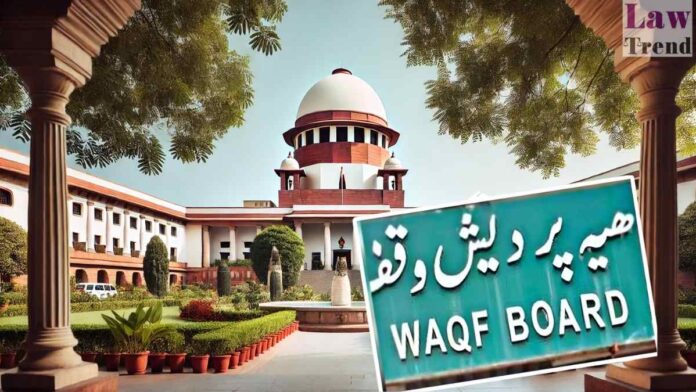The Supreme Court on Wednesday raised sharp questions regarding the religious composition of the Waqf Board while hearing a batch of petitions challenging the constitutional validity of the Waqf (Amendment) Act, 2025. Chief Justice of India Sanjiv Khanna, leading the three-judge Bench, questioned the rationale behind the inclusion of non-Muslim members on Waqf boards and asked whether the government would reciprocate by allowing Muslim representation on Hindu religious boards.
“Are you saying that from now on you will allow Muslims to be part of Hindu endowment boards? Say it openly,” CJI Khanna remarked while addressing Solicitor General Tushar Mehta during the proceedings.
The Bench, also comprising Justices Sanjay Kumar and K.V. Viswanathan, was hearing more than 70 petitions that have challenged various provisions of the amended Act. The petitioners have argued that the inclusion of non-Muslim members infringes on the community’s right to manage its religious affairs as guaranteed under Article 26 of the Constitution.
Chief Justice Khanna observed that the amended Act provides for eight Muslim members on the Waqf Board, along with possibly two non-Muslim members, and questioned the justification for such a composition. “Why not have non-Muslims also in the advisory board of Hindu endowments then?” he asked.
The Solicitor General, in response, questioned the neutrality of the Bench with a pointed remark: “By that logic, this Bench also cannot hear the case.”
This drew an immediate and stern response from the Chief Justice, who asserted the impartiality of the judiciary: “What! When we sit over here, we lose our religion. For us, both sides are the same. How can you compare it with the judges?”
Justice Viswanathan further pointed out that there are practical aspects, such as access to mosques, which might justify the need for Muslim familiarity in certain board roles. To this, the Solicitor General responded that such matters could be managed by the Charity Commissioner.
The Court also examined the feasibility of reversing Waqf designations based on long-standing religious use, especially in the absence of historical sale deeds. It flagged the challenge of undoing Waqf by user, particularly for centuries-old mosques.
Interim Relief and Court Observations
Providing limited interim relief, the Supreme Court stayed the operation of two key provisions of the amended Act:
- Properties declared as Waqf by courts shall not be de-notified during the pendency of the proceedings.
- The provision barring treatment of properties as Waqf while under investigation by the District Collector has also been stayed.
The Court clarified that all members of the Waqf Board, except for ex-officio members, must be Muslims.
The matter will be taken up again on Thursday at 2 PM for further arguments.




